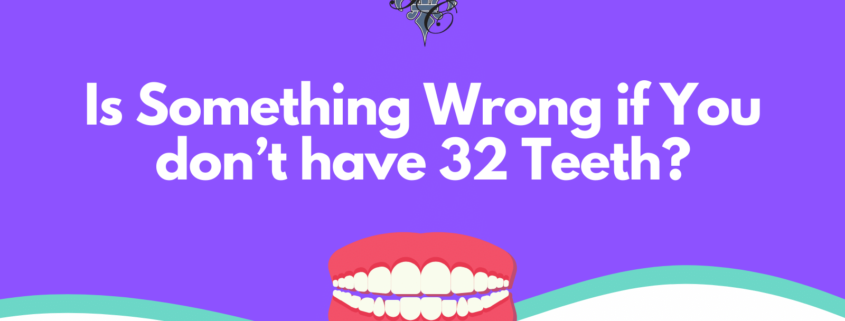Is something wrong if you don’t have 32 teeth
Naturally, an adult has 32 teeth, out of which many remove their wisdom teeth, bringing the total count down to 28. However, some people never develop their wisdom teeth. In other cases, people don’t have their other permanent teeth.
Well, to be clear, this does not happen due to tooth loss from injury or decay- the teeth just never developed in the first place.
Is something wrong if you don’t have 32 teeth? This answer depends on the reason for missing teeth.
Why do Some Teeth not Develop?
The simplest answer is genetics. There is a term that’s used when a person is missing 6 or fewer permanent teeth, hypodontia. On the other hand, when a person is missing more than six permanent teeth, it’s called oligodontia. These are birth defects that are caused by abnormal changes in the genes. Both of these problems are common and can be developed in any child at a growing age. The most important thing to do for both of these conditions is to diagnose and start treatment early. Not only for cosmetic purposes, but they can lead to severe problems in the future.
Treating Hypodontia and Oligodontia
When a person is missing teeth, several things can happen:
- Their teeth can shift, causing misaligned bites and other tooth damage
- Their body can reabsorb the jawbone
- They may have trouble eating or speaking
These things can have a major effect on a person from a dental and emotional standpoint. That’s why it’s important to catch it early so your dentist can begin a treatment plan for oligodontia and hypodontia. While we can’t force the missing teeth to grow, they can be replaced. Dental implants, dentures, crowns, and bridges can all be used to fill in any missing teeth. If left untreated for too long, the current teeth might shift from their original position, causing misalignment. As a result, the doctor needs to move them back with braces or other means before installing replacement teeth in your mouth.
Missing Wisdom Teeth
Adults start developing wisdom teeth at different ages. You can expect the development of your third molars in your early adult years or late teens, around age 17 to 21. Some people also get their wisdom teeth earlier, while others develop them later in life. But a small percentage of the population never develop some (or all) of their wisdom teeth. This isn’t a bad thing at all! That’s fewer teeth for the oral surgeon to remove. Also, since you will be living with them for several years, you will not notice this change. Missing wisdom teeth are also unnoticeable and don’t impact your oral health.
Like hypodontia, missing wisdom teeth are the result of a genetic anomaly. Research shows that thousands of years ago, a mutation suppressed the formation of wisdom teeth. Archaeologists have found fossils in China that can be traced back to 300,000 to 400,000 years ago that are missing third molars. Experts predict that this mutation has impacted our ability to develop wisdom teeth.
Bottom Line
Whether you have missing wisdom teeth or others, it’s important that you get yourself checked. This will help you get an idea of whether they are impacting your oral health. Since it’s nothing that could have been prevented, as it happened on the genetic level, you can treat hypodontia and oligodontia. The important thing is to have the teeth replaced before any other issues develop. Call Dr. Chauvin’s office if you have more questions!



